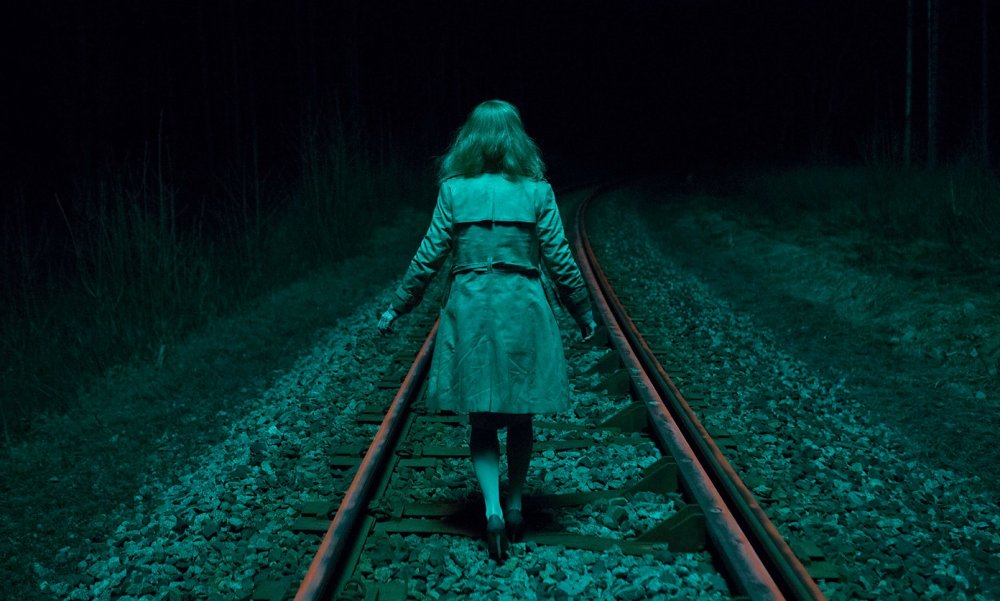This Czech film’s title is a psychiatric term meaning a loss of identity, similar to amnesia, and applies here to the condition of protagonist Alicja. Or Kinga, as she used to be known. The film opens with the dirt-covered, dishevelled central character emerging from a train tunnel and climbing onto a platform before urinating in the midst of a crowd of commuters. The brief, stark scene sets the grim atmosphere for the rest of the film, as Alicja struggles to function without her memory – she barely speaks to police or medical staff and has no explanation for where she’s been or who she is. After a television plea, Alicja is claimed by a family and taken to a home she doesn’t recognise, expected to return to life as a wife and mother to a husband and son she can’t remember. It is immediately clear, though, that something is troublingly amiss.
As the narrative drifts – or drags – forward, Alicja begins regaining small pieces of her old life – a PIN code is entered without hesitation and a hidden fuse switch is found easily in her house. She also tentatively begins reforming connections with her family. Eventually, though, this teasing of the audience becomes a little trying. We await heightened moments of conflict or revelation but they are held from us, elongating the sense of bewilderment Alicja faces. The film, then, becomes more unnerving than “enjoyable”. Gabriela Muskala‘s haunting central performance – conveying confusion, fear and resistance with minimal dialogue – coupled with the muted, shadow-driven cinematography creates a lasting feeling of discomfort and secrecy.
The use of sound is effective, on the other hand, and cleverly conveys Alicja’s state of mind from a blistering gale on a deserted beach to high-frequency synths in one eerie country road scene at night. Again, though, each of these powerful scenes fails to climax and the audience is likely to feel unsatisfied.
Ultimately, Fugue disappoints. Early scenes point towards a psychological thriller but red herrings lead us astray. In the end, the film is far more sedate than many of its elements momentarily fool us into believing. The morally questionable resolution also makes sympathy for Alicja a difficult ask for audiences. Perhaps the film is aiming at commentary on motherhood, marriage and expectations of women. However, these interesting ideas are buried too deep in a genre film that doesn’t fulfil on that front either.
